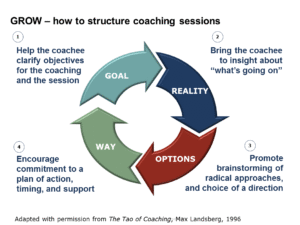Summary
During the 2025/26 Academic Year, I am undertaking an in-house professional development programme called "The Edinburgh Manager". This post is a reflection on the second event in the course, which was called "The Know yourself Workshop"
Knowing myself…
This session had two main content focuses. The first, concentrated in the pre-work, was about understanding myself. I was required to complete a strengths profile report, and a development wheel. Both of these tools were designed to make me reflect on the skills I have, and identify which ones serve my needs, and where do I need to develop. I also took this opportunity to anonymously survey my team, peers and managers to complete a Johari Window.
I was surprised (and flattered) to see one of my peers had said I was “good-humoured”, and more so to see “sense of humour” listed as an unrealised strength on my report. I was also surprised that the report said my “strategic awareness” was a learned behaviour I should use sparingly. I had always seen this as a strength that separated me from others I had worked with in the past. Having taken time to reflect on this, I have come to accept that I do spend more time focusing on potential futures, than realised present moments. Perhaps thats is because I have already spent time in the past thinking about my current present?
I am definitely resolved to try and spend more time on my present, and see where I end up. Afterall curiosity it always a skill worth practising.
Helping others know themselves…
The workshop itself focused on learning how to “coach”. Coaching in this context is a guided thinking exercise. The coach (i.e. the manager) guides a coachee (i.e. the taff member) through a conversation helping them to set goals, and develop an action plan. The coach is not there to provide solutions, but to ask open-ended questions to help the coachee clarify their goal, develop a plan to achieve it, and help set up milestones for accountability.
We were taught the GROW method.

We broke into small groups, and then practiced coaching each other using this method (example questions were provided for each section of GROW). For the first time in a professional development session I enjoyed the ‘role play’ element, and actually found it very useful. I think this is because rather than being given a character to play, I was working with colleagues on a real problem I was looking to solve. I’d highly recommend using this quasi-roleplaying methodology for teaching other skills.
Making the most of learning opportunities
I enjoyed this session, most of all because I set up time (in advance) to do the pre-work. I also took the additional step of completing the Johari Window – something I had also been curious about, but had not been ready to face the “unknown”.
As an educator, I love being involved in learning. My previous industry relied on me to do the majority of professional learning during my own time. I found this almost paralyzingly frustrating. Now, that I have the support of my work place, I have reconnected with the joy of learning. It once again reinforces the impact a manager has on their colleagues.
(Wikedl, CC BY-SA 4.0
(Wikedl, CC BY-SA 4.0

